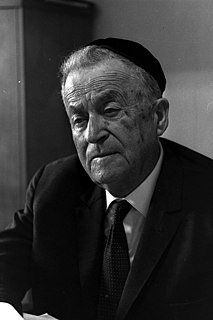A Quote by Ray Bradbury
I've only written one science-fiction book: 'Fahrenheit 451.' That book is a book based on real facts and my hatred of people who destroy books.
Related Quotes
I began writing books after speaking for several years and I realize that when you have a written book people think that you're smarter than you really are if I can joke. But it's interesting. People will buy your book and hire you without reading the book just because you have a book and you have a book on a subject that they think is of interest to themselves or e to their company.
I believe in books. And when our people [coughing] - our people of Jerusalem, let's say after the Romans destroyed the temple and the city, all we took is a little book, that's all. Not treasures, we had no treasures. They were ransacked, taken away. But the book - the little book - and this book produced more books, thousands, hundreds of thousands of books, and in the book we found our memory, and our attachment to that memory is what kept us alive.
You will want a book which contains not man's thoughts, but God's - not a book that may amuse you, but a book that can save you - not even a book that can instruct you, but a book on which you can venture an eternity - not only a book which can give relief to your spirit, but redemption to your soul - a book which contains salvation, and conveys it to you, one which shall at once be the Saviour's book and the sinner's.
Boswell: But, Sir is it not somewhat singular that you should happen to have Cocker's Arithmetic about you on your journey? Dr. Johnson: Why, Sir if you are to have but one book with you upon a journey, let it be a book of science. When you read through a book of entertainment, you know it, and it can do no more for you; but a book of science is inexhaustible.


































